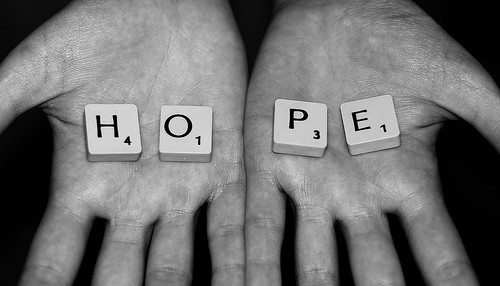To me, today is arguably the most important day of the year, it’s a day that the public commemorates a man who led the most prolific movement, in our recent history, towards a dream of equity. It’s also a day to remind ourselves that that dream has not been obtained and that one single day is not nearly enough time to lend our focus to the inequity people of color face in our country every day.
Today, I am an emotional melee. I have not spent enough time in my life fighting; fighting for the ethical common ground, fighting a system that makes my own privilege seem invisible to me, fighting to understand more, fighting in the streets, protesting, organizing, being a soldier for a cause that is bigger than me, that is bigger than politics or religion and that is big enough to warrant my/your attention.
I had a taste of that fight over this weekend. With my faculties as an actor I participated in a workshop production of a new play, Hope: Wanted, by Justin Dietzel with The Beat Theatre Collective in Chicago. The play incorporated sound, movement, poetry and dialogue (Some of which was taken from the true stories) to shed some light and perspective on the homeless epidemic. I had tasted the fight to change something and something changed in me (Which is the start). The play was by no means perfect, as it was not intended to be, but a wonderfully diverse and beautiful group of people came together in art to shed some much needed light on a grossly neglected issue.
I bring this play up today for two reasons. First, because it’s fresh, my heart is still open, gaping actually, with all the weight of the work. Second because the homeless epidemic is a perfect example of inequity in our country. According to the US Census 13.3% of Americans are black and according to the 2014 Annual Homeless Assessment Report, 40.6% of the homeless are black. A higher percentage of the homeless are black than are white (at 40.1%). This disparity is troubling and indicative of a much bigger, systemic problem.
Let’s get this clear: The color of your skin itself does not lend to a higher likelihood of becoming homeless, this is science, the color of your skin itself provides no proclivity for mental illness, drug abuse, crime, responsibility, laziness or any other self defining trait that may seem to lead to homelessness.
The disparity of race between the general population and that of the homeless is an illustration of how the system has always been set up in the advantage of white Americans; It is rock solid evidence of the existence of White Privilege. How? For example, in Chicago, in 2013, the largest collective school closure occurred. Over 50 schools were closed in order to relieve some of Chicago’s budget deficit displacing over 12,000 kids, most of which found homes in other schools but that’s not necessarily the real issue, it’s that the majority of kids affected by these closures were children of color. If you feel the need to close schools in order to decrease spending, why not close schools in neighborhoods of varying demographics? Why not close schools with a majority white population?
Here’s where it gets tricky, because the reason you might close schools in neighborhoods of color is because of money; It’s a classic case of Risk vs. Returns. Which, as a city planner might view it, is a clear way to determine what is good for a city fiscally and they wouldn’t be wrong most of the time, except for when they are wrong in the moral sense. Poverty begets poverty, it’s hard for a family to dig there way out of hole when the hole is all they’ve ever known, sometimes for generations, and often in places where quality education is not made available. In much the same way that most white Americans never understand, let alone acknowledge their White Privilege, because they’ve never known anything different. According to the 2007 – 2011 ACS, the two racial groups at the top of the poverty list are the two most stigmatized in our countries history; Native Americans (You know, those folks that White Colonialists tried to eradicate from existence) and Black Americans (You know, those folks who White Colonialists dragged to the “New World” and enslaved for economic gain).
So how do these families of color dig their way out of poverty? Education is a damn good start. With good, quality, well funded and available education, the future generations of families of color who have been stuck in a system that perpetuates their poverty can have a chance at breaking the chains of white reinforced economic disparity in America.
The Homeless epidemic won’t go away, at least not any time soon. And the disparity of race within the homeless community is not going to change much any time soon either. But to acknowledge that the very disparity I am addressing is part of the very hurdle that Mr. King’s “Dream” lie on the other side of, is, at the very least, a decent step forward. Equity is not a reality and the sooner that white Americans can move past the myths provided by our own pride and self-righteousness, the sooner we can move towards true justice and liberty for all of us.
